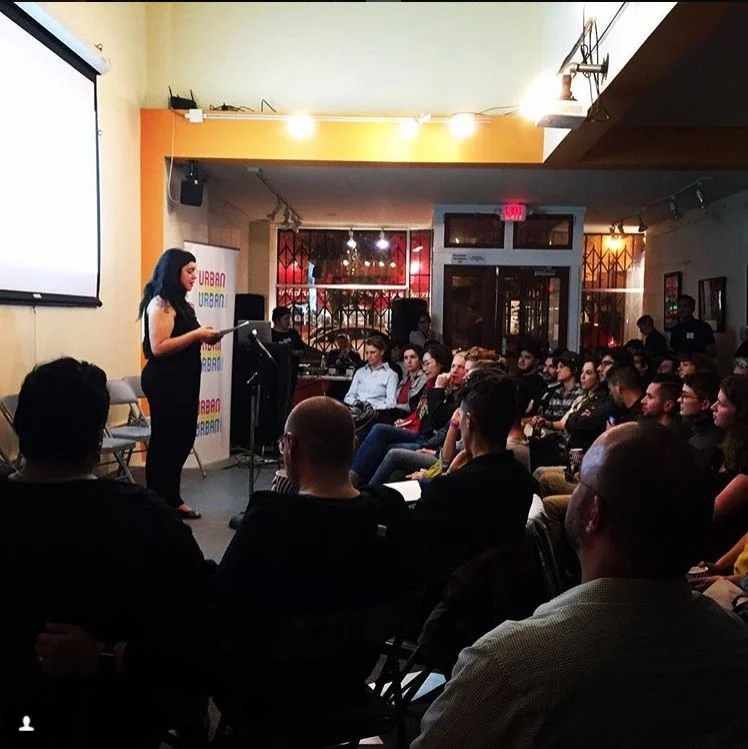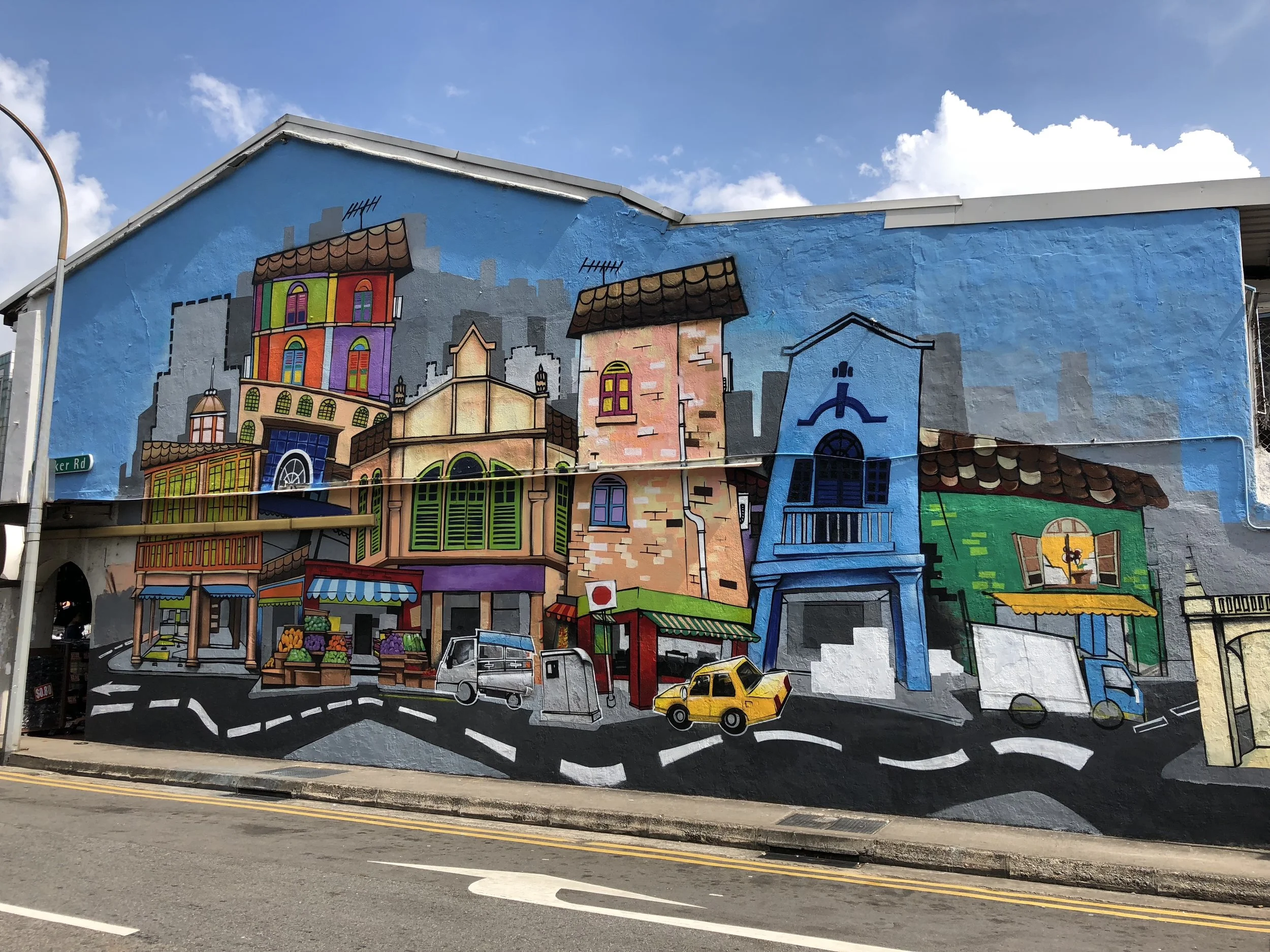The San Francisco Urban Film Fest: Getting to Know Executive Producer Fay Darmawi
By Reanna Tong
The SF Urban Film Fest (SFUFF) is an annual week-long film festival that focuses on cities and civic engagement inspired by great storytelling. SFUFF believes compelling stories can help shape urbanist ideas, practice, and project implementation to improve our cities for everyone. SFUFF events include film screenings, panel discussions, and social impact storytelling workshops.
Fay Darmawi is the founder and executive producer of SFUFF. With a unique background in finance and film, Fay has 20 years of community development finance experience and five years of screenwriting training culminating in a fellowship with the Community of Writers at Squaw Valley. Based on her curation of the SFUFF, she was selected as one of the first Yerba Buena Center for the Arts Fellows and a fellow in the Curatorial School as part of Valletta 2018.
Fay’s formal urbanist training is from MIT and the University of Pennsylvania but her love of cities is from growing up in the epicenter of Jakarta, Indonesia. She hopes storytelling will inspire critical and creative civic engagement to make cities better for everyone, but most urgently for our most vulnerable populations.
Reanna Tong (RT): Your formal education is in city planning. How did you go from doing city planning and being a housing finance professional to producing a film fest?
Fay Darmawi (FD): Well, it was Jerry Brown's fault. When he dissolved the redevelopment agencies in 2012, there was hardly any discourse around it. I was completely dismayed because redevelopment agencies made a comeback from their horrible past and was 30 percent of the funding stack on affordable housing deals. So how did we start a conversation about it in a very efficient and fast way?
I saw how An Inconvenient Truth was able to move the conversation about climate change from academia to popular culture very quickly. You know what, that's it! It's film! But instead of me making a film, because that would have taken five years, why don't I just do a film festival and screen stuff that's already been made? It's so much more within my wheelhouse as a project manager to do something like that.
RT: So at the time, you were able to find films that were already made around that topic?
FD: Initially it was housing, but then I thought, "Well you can't just talk about housing because housing is framed in urban planning." Yeah, there was already films about urban planning at that point--a lot of films about urban planning, in fact.
RT: What year was that?
FD: The first film festival was November 2014.
RT: What goes into selecting the films and discussions of this film fest?
FD: For the first few years I did it all myself. Now I have a team of producers, so our process now is very much consensus-based. The five of us come up with a theme that’s poetic and conceptual. From there, we create a list of films that relate to the theme but focused on issues . Finally we invite panelists with diverse viewpoints.
RT: Are the panelists and movies usually local to San Francisco?
FD: Well, the panelists are local and many of the filmmakers are also local. Movies can be narrative or documentary, international, domestic, short, long form…
RT: How do you think the art and films have influenced urban planning and people's experiences or understanding of the city?
FD: I think that urban planners really want to learn how to use visual storytelling to create more engaging presentations at community meetings. I think they see the potential of a video and film as ways to tell really complex storiesAnd Because there's a lot of visuals, it helps people to follow along. So I think urban planners are definitely open to it. The storytelling workshop was accredited for CM credits, continuing education for AICP. And we just had a meeting with the Northern California chapter of APA, who is considering accrediting all our events for CM credits.
And for the general public, I think people are educated without feeling overwhelmed. Once they get the gist of what the film festival is, they tend to come back which means it's engaging. Does it translate into people actually being more active in their community? I'm not sure--we should ask that! I think it takes a while for something like this to take off and for people to understand what it is because it's so different. I think it's framed as a film festival, but when you get there, it's much more. You're not just consuming the films; we're really asking you to start to question your built environment. And that's a large order because a lot of people just assume that the things are the way they are.
"You're not just consuming the films; we're really asking you to start to question your built environment."
RT: So we talked about how the art has influenced professions and or professional the profession and the general public. How about from year to year--how the city and people have influenced the art? Have you noticed any changes from year to year or how you choose your scenes from year to year.
FD: Definitely, the city informs the film festival so deeply - social justice...acknowledging the amazing communities of San Francisco...San Francisco being the place where the future is being invented. All those things definitely influence every year's theme for example -Dystopia/Utopia , Just Cities, and last year our theme was Change.
RT: How has the festival evolved over the past few years. Have there been any big changes from year to year?
Panel of Queer "Pioneers" discuss displacement, community, economic resiliency, and survival of LGBTQ+ businesses. Photo credit: SF Urban Film Fest.
FD: For years it was just me but now I have a team of 4 program producers. You can see the caliber just shot up last year because of the team.
We have a lot more partners, including the Metropolitan Transportation Commission and Seed Fund.
I think that our audience has also changed. It was mostly architects and planners. Now it’sonly 25 percent architects and planners and I think that's because we we're showing it in different venues. The first year it was all SPUR.. The second year we were able to screen at the Exploratorium and University of San Francisco. And then last year we screened at the Google Non-Profit Space, 518 Valencia, and the Tenderloin Museum.
RT: What do you hope for it to become?
FD: I want SFUFF to be where people learn about how the technical aspects of urban planning meshes with the emotional resonance of storytelling. .
I want to get more city department heads involved, show them how other cities have used video for civic engagement, not just PSA's, but actual ongoing dialogue with the public.
To create a mass appeal, you have to have people who are appealing to the masses. I would love to have David Simon. He's the showrunner for The Wire. We showed one of his mini series called Show Me A Hero in 2016, HBO gave us the rights to screen that.
I just want to get folks excited about their city.
RT: Is that what you're hoping for people to take away from the film fest?
FD: Yes, for people to love their city.
RT: And how about the artists?
FD: The artists already love their city. I hope that from the film fest, they can share and also feed off of the energy from the audience. I think it propels them to continue their work.
RT: What's the biggest challenge of producing the film fest?
FD: I think raising money. I am now speaking to your readers - we’d love your support by becoming a member, just sign up on our website.
RT: How about your favorite part of the film fest?
FD: My favorite part is being with my community in the film festival. The outpouring of support, volunteers, and the feeling of community within the film festival--it keeps me going.





